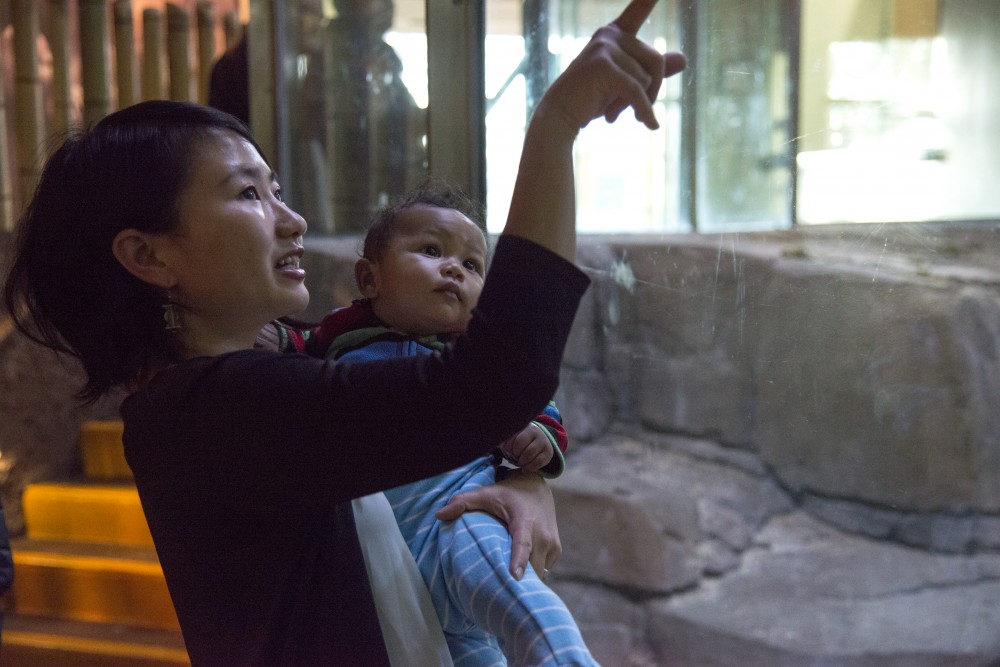When Yuko Yadatsu moved from Japan to Minnesota to pursue her master’s degree, she had no plans of having a baby while in school.
Almost two years later, Yadatsu balances classes at the University of Minnesota and cares for her 7-month-old son with support from a new child care grant.
The $150,000 grant, called the University Student Service Fees Child Care Assistance Grant, is awarded to the University’s Student Parent Help Center each year. All fee-paying University students are eligible, and individual awards are determined on a case-by-case basis.
This grant differs from other University child care grants because it accepts applications from out-of-state and international student-parents, said SPHC Director Susan Warfield.
The grant was made after the student service fee guidelines were updated last year to help underfunded childcare centers on campus, Warfield said.
“I don’t know of another program that is serving international students on any type of child care assistance,” she said.
After moving to Minnesota in April 2016, Yadatsu got pregnant in July. Despite discouragement from peers, she said she didn’t want to have to sacrifice her career and education to become a mother.
Yadatsu said when Warfield first introduced her to the grant, she couldn’t believe the scholarship was available to international students.
But as a first-year master’s student in public health, she said she underestimated how hard it would be to balance her time.
“I really wish other students without kids [could] know how my life is,” Yadatsu said.
While other students may have more flexibility in their schedules, she said she has to keep a rigid schedule to leave time at the end of the day to spend with her son.
For Johanna Nashandi, a first-year Ph.D. candidate in social work, the biggest challenge is missing class if her 5-year-old daughter gets sick.
“I feel like it’s better for me to sacrifice this year than [leave] her at home,” Nashandi said.
There isn’t a lot of information about what graduate student-parents need, said Nick Ames, Council of Graduate Students member and Student Senate representative.
In a meeting this month, the Student Senate passed a resolution to collect information on graduate student-parents and to continue the level of funding for SPHC and families who benefit from the grant.
“The needs on campus are not being met,” Ames said.
The resources at the SPHC are still limited, and he said numbers to support the call for more funding will help COGS present a need for future funding.
Warfield said most of the resources from SPHC have historically focused on undergraduate student-parents, who are an underrepresented group.
Undergraduate parents are at higher risk not to complete their degrees and are more likely to be working students, students of color or first-generation college students, she said.
Graduate students, however, are usually more assertive in seeking help when they need it and are more likely to have long-term support from partners, Warfield said.
Right now, she said there are 24 student-parents on the grant receiving aid and 10 more awaiting application review.
Yadatsu said she started receiving money from the grant this fall, and uses it to help pay for daycare.
She pays tuition with help from her mom, and part of Yadatsu’s husband’s income from a full-time job at the University contributes to childcare expenses.
“I feel like I’m selfish… that I’m leaving him in daycare, paying for expensive daycare and going to school,” Yadatsu said.
Nashandi said the grant is a significant help to her as a single parent and international student.
Her husband still lives and works in her home country of Namibia, so she takes care of her daughter while working as a research assistant, going to classes and adjusting to life in the U.S.
“The money is such a big relief,” Nashandi said.

















